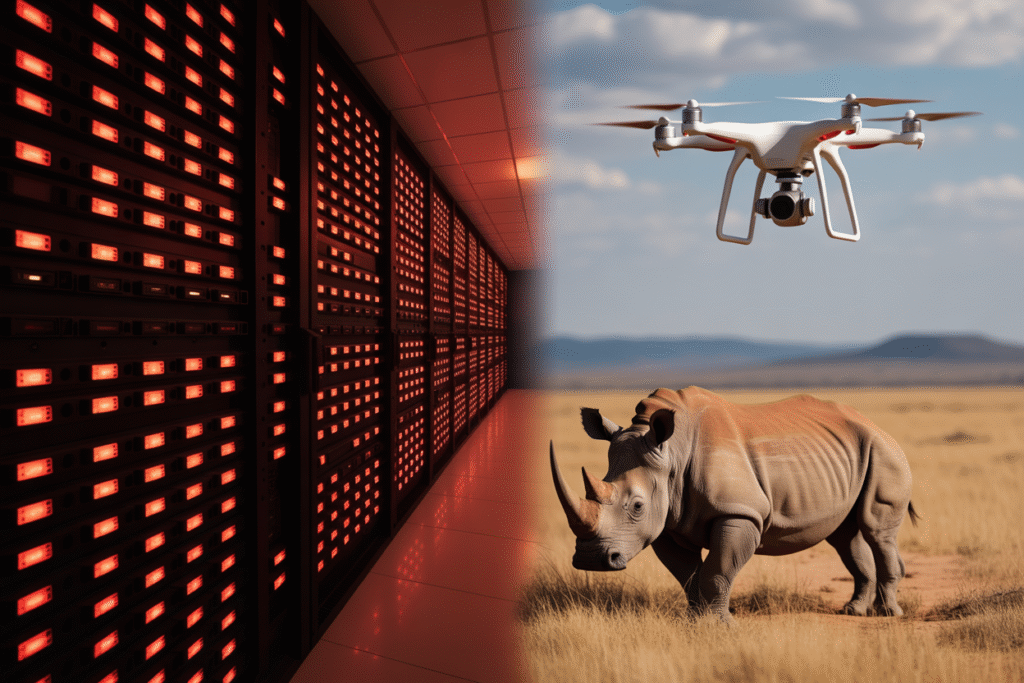From ICE fears to wildlife drones, the same AI eyes are watching—are we protecting or policing?
Scroll for five minutes today and you’ll trip over another headline screaming about AI surveillance. Some cheer it as the shield that will catch poachers and predators. Others swear it’s the Trojan horse for a police state. The twist? Both camps might be right. Let’s unpack the tug-of-war nobody can sit out.
The ICE Nightmare Scenario
Taylor Lorenz dropped a fire tweet that lit up timelines: identity verification online could hand the keys to agencies like ICE. Her warning is blunt—today’s “security” tool becomes tomorrow’s deportation database.
Imagine every login, like, and retweet funneled into a government dashboard. Convenience morphs into coercion. Critics call it dystopia in beta; supporters insist it’s just good housekeeping against bots and bad actors.
The fear isn’t theoretical. Data once collected rarely stays in one room. If ICE can subpoena cloud logs, your meme stash could end up in a courtroom.
Peak Hype, Empty Wallets
Gergely Orosz skewered the circus with one phrase: peak AI hype. He pointed to a mattress startup promising AI-powered sleep and jewelry that chats back. Investors poured millions, then asked, “Wait, what does this even do?”
The pattern is familiar—flashy pitch decks, buzzword bingo, and a valuation that rockets before the product crawls. When the music stops, regular people lose jobs and savings while founders pivot to the next moonshot.
The danger isn’t just wasted cash. It’s the credibility burn that makes society roll its eyes at real breakthroughs. Cry wolf enough times and the village stops listening.
When the Bubble Bursts
Spencer Hakimian’s chart looks like a cliff edge: AI stock chatter is sliding downhill. He draws dotted lines to the dot-com bust and housing crash, hinting we’re next.
History rhymes. First comes the fever—every taxi driver brags about AI trades. Then the chill—headlines flip to layoffs and lawsuits. The middle gets crushed while early sellers sip champagne.
But a popped bubble isn’t all doom. Cheap GPUs flood the market, talent scatters to useful corners, and the real builders finally get quiet rooms to invent something that matters.
Your Browser Just Betrayed You
Brave security researchers waved a red flag: Perplexity’s Comet browser can leak your accounts like a sieve. Turns out giving an AI agent the keys to your web tabs is riskier than handing a toddler a lighter.
The exploit is elegant and scary. An attacker tricks the agent into visiting a booby-trapped site, then siphons cookies, passwords, and session tokens. All while you sip coffee and assume the machine is just “helping.”
The lesson repeats across every demo stage: autonomy without guardrails is a loaded gun. Until sandboxing and zero-trust defaults are baked in, treat every AI agent like a charming stranger with a lock-pick set.
Drones That Save Rhinos, Not Spy on You
Planet Clarke’s tweet flips the script: her team straps military-grade cameras to drones and sends them over African reserves. The mission? Catch poachers before they pull the trigger on endangered rhinos.
Same hardware, different intent. Instead of facial recognition at protests, the drones tally elephant herds and sniff out snares. Local rangers call it a force multiplier; privacy activists call it a slippery slope.
The moral maze is real. Today’s conservation hero can be tomorrow’s border patrol tool. The only guardrail is relentless transparency—open code, public logs, and community oversight so the watchers stay watched.


